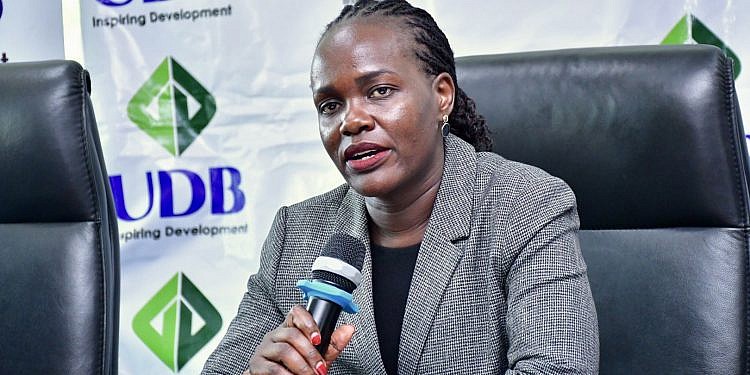The 2023 development impact report has indicated that projects supported by Uganda Development Bank( UDB) have created 51841 jobs, an increase from 51439 in 2022.
According to the report, of these jobs, 41.21% were permanent and 58.78% were temporary with the highest proportion of temporary employment, 41.5% or 12,633 jobs being in primary agriculture.
“This may be attributed to the nature of the sector, where activities peak during the planting, weeding, and harvesting seasons and are low during other seasons. Therefore, farmers follow the same patterns in employing workers,” Dr Francis Mwesigye, the Director of Economic Research and Knowledge Management said.
According to the report, youths filled 64% of the jobs created and maintained while women followed at 27% of the jobs, and PWDs contributed 0.25%.
“Women accounted for 13,727 jobs and held 39% of shareholding, up from 27% the previous year. This increase can be attributed to the bank’s deliberate effort towards women’s inclusion through tailored products. Women constituted 43% of the senior management teams in these enterprises, up from 37% in 2022. PWD (Persons living with Disabilities) took up 130 jobs.
Profits
The report also indicates that UDB-supported enterprises posted over shs869.05 billion in profitability in 2023, showing a growth in financial strength and viability.
Sectoral profit margins varied, with sectors like health and primary agriculture demonstrating higher profit margins than tourism and hospitality.
Tax contribution
Tax contribution supported enterprises contributed approximately shs236.08 billion in direct domestic taxes in 2023, which is estimated to be 1.43% of the total national domestic taxes in 2023, a significant figure that underscores the scale of our tax revenue.
An analysis of the sectoral contribution to taxes showed that the manufacturing sector contributed the most, at 47% of the total tax revenue contribution, followed by agro-processing at 27.9% and primary agriculture at 15.0%.
The report for 2023 show that earnings from locally produced goods destined for export saw a commendable 47% increase from shs649 billion to shs953 billion.
According to UDB, this significant growth was primarily due to the increased production, particularly in the manufacturing and agro-processing sectors, a testament to the strength of our local industries.
These mainly exported to neighboring countries within the East African Community (EAC), COMESA, the EU, and the UAE, emphasizing the importance of regional trade partnerships for market access.
Notably, a promising 66% of all raw materials utilized in enterprises funded by the bank were locally produced during the year, a clear sign of the growing strength and potential of our local industries.
“The 2023 development impact report showcases the substantial impact of our strategic investments and interventions. We proudly support Uganda’s economic growth and job creation, while unwaveringly prioritizing sustainability and regional trade. Our financial and non-financial interventions aim to deliver high socio-economic value, including job creation, increased production output, and foreign exchange earnings,” Patricia Ojangole , the UDB Managing Director said.
“We are steadfast in our support for Uganda’s economic growth and job creation, with a strong emphasis on sustainability and regional trade. Our financial and nonfinancial interventions are designed to deliver high socio-economic value, including job creation, increased production output, and foreign exchange earnings while contributing to government revenues through tax.”






